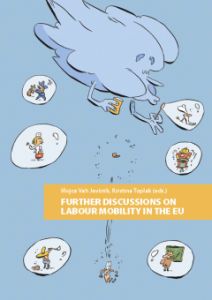
Chapter / Care Migration in Care Homes for Older People in the European Semi-Periphery Between Slovenia and Former Yugoslav Countries
Majda Hrženjak and Maja Breznik have published a chapter Care Migration in Care Homes for Older People in the European Semi-Periphery Between Slovenia and Former Yugoslav Countries.
Slovenia is one of the fastest ageing societies in the EU, lagging behind the OECD average in public spending on long-term care and facing a severe shortage of workforce in care homes. In recent years, the state and nursing homes have been seeking a solution by reviving a practice established in the 1960s and 1970s, when Slovenia systematically recruited care workers from the republics of the former Yugoslavia. In this chapter, the authors contextualise care migration in Slovenian nursing homes at the intersection of the global neoliberal political economy of care and national policies and organisational practices. Like most Eastern European countries, Slovenia is in a dual position in the transnational political economy of care: on the one hand, caregivers, especially from border areas, are leaving for Austria and Italy in a pattern of daily labour migration due to poor working conditions; on the other hand, nursing homes are trying to recruit caregivers from the countries of the former Yugoslavia, competing with other countries, especially Germany, Austria and Italy. As the interviews with nursing home managers in the study showed, recruitment strategies are mostly taking place outside official channels and bilateral recruitment agreements. The key strategies are recruitment through migrant women’s social networks and family reunification. Through such strategies, homes compensate for the absence of integration policies at state level, so that migrant social networks and families themselves bear the burden of transition and integration costs. The link between labour cost containment in long-term care and migration is also evident in the non-recognition of migrant workers’ education, which is a consequence of administrative barriers to labour migration. The authors note that the political economy of care in neoliberal capitalism needs borders and their ambiguity – it needs borders that are both porous and exclusionary.
The chapter is published in Further Discussions on Labour Mobility in the EU, edited by Kristina Toplak and Mojca Vah Jevšnik and published by ZRC SAZU.
